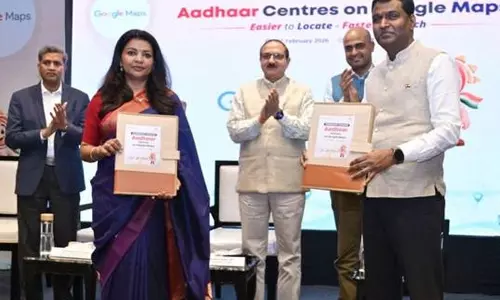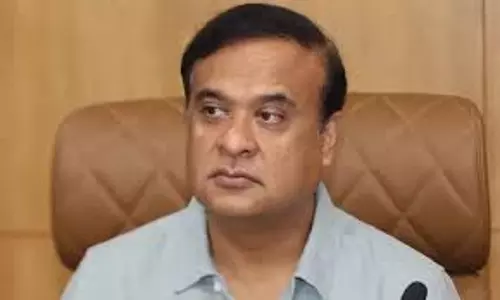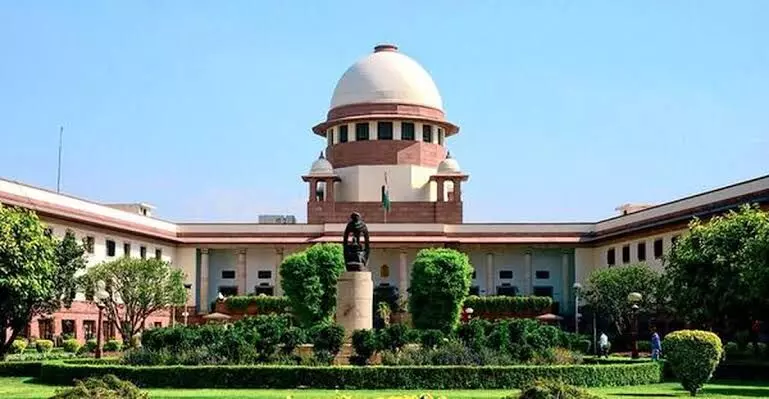
SC to hear pleas challenging Citizenship Amendment Act on September 12
text_fieldsNew Delhi: The Supreme Court would hear on Monday a batch of pleas challenging the constitutional validity of the Citizenship (Amendment) Act (CAA) which seeks to grant citizenship to non-Muslim migrants who came to India from Pakistan, Bangladesh, and Afghanistan on or before December 31, 2014.
While refusing to stay the operation of the law, the Supreme Court had on December 18, 2019, issued notices to the Centre on the pleas.
A bench comprising Chief Justice Uday Umesh Lalit and Justice S Ravindra Bhat has posted 220 petitions, including the lead plea of the Indian Union of Muslim League, for hearing on September 12.
The Supreme Court had issued notice to the Centre and had sought its response by the second week of January 2020.
However, due to the COVID-19-induced restrictions, the matter could not come up for a full-fledged hearing as the matter involved a large number of lawyers and litigants.
While issuing the notice on pleas, the bench had asked Attorney General K K Venugopal, representing the Centre, to consider using audio-visual medium to make citizens aware of the legislation.
"We are not going to grant a stay," the Supreme Court had said.
The Indian Union Muslim League (IUML), one of the petitioners which have challenged the CAA, said in its plea that it violates the fundamental Right to Equality and intends to grant citizenship to a section of illegal immigrants by making an exclusion based on religion.
Parliament cleared the Act which grants citizenship rights to religious minorities such as Hindus, Christians, Sikhs, Parsis, Jains, and Buddhists, who have come to India on or before December 31, 2014.
The then President Ram Nath Kovind gave assent to the Citizenship (Amendment) Bill (CAB), 2019 on December 12, 2019, turning it into an Act.
The plea by IUML filed through advocate Pallavi Pratap seeks an interim stay on the operation of CAB and the Foreigner Amendment (Order), 2015, and Passport (Entry Into Rules), Amendment Rules, 2015.
The petition alleged that the government's CAB was against the basic structure of the Constitution and intended to explicitly discriminate against Muslims as the Act extended benefits only to Hindus, Sikhs, Buddhists, Jains, Parsis, and Christians.
Several petitions have been filed challenging the constitutional validity of the Citizenship (Amendment) Act, 2019, including by RJD leader Manoj Jha, Trinamool Congress MP Mahua Moitra, and AIMIM leader Asaduddin Owaisi.
Several other petitioners include Muslim body Jamiat Ulama-i-Hind, All Assam Students Union (AASU), Peace Party, CPI, NGOs 'Rihai Manch' and Citizens Against Hate, and advocate M L Sharma. Besides, law students have also approached the Supreme Court challenging the Act.























